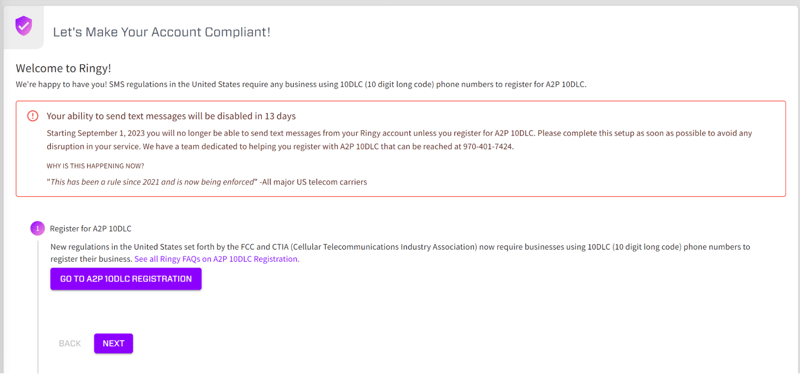
Automate CRM: Functions, Benefits, and Solutions
 Updated on
Updated on
 By Bradley Kovacs
By Bradley Kovacs
Bradley Kovacs
Bradley has been passionate about technology since childhood, starting with Microsoft Flight Simulator at age six. In college, he automated his data e...
learn more
Bradley Kovacs
Bradley has been passionate about technology since childhood, starting with Microsoft Flight Simulator at age six. In college, he automated his data e...
Table of Contents
Table of Contents
In a world where time is money and every second counts, the race to stay ahead in business is more exhilarating than ever. So, are you ready to step up your game, leaving your competitors in the dust?
In this guide, we'll dive deep into the world of automate CRM, unraveling its functions and highlighting its incredible benefits. We'll also present you with cutting-edge solutions that will leave you wondering how you survived without them.
So buckle up and prepare for a wild ride through automated customer relationship management!
Definition of CRM Automation
CRM automation refers to using technology and software tools to streamline and optimize customer relationship management processes within a business. At its core, an automate CRM aims to simplify and automate various tasks and workflows associated with managing customer relationships. This includes:
- Capturing and organizing customer data
- Tracking interactions and communication history
- Managing sales leads and opportunities
- Analyzing customer behavior and trends
With automation, businesses can deliver personalized and targeted interactions, ensuring that each customer feels valued and understood.
For example, by automating drip email campaigns, you can send customized messages to different customer segments, offering relevant promotions or addressing specific needs. This not only improves customer satisfaction but also boosts engagement and conversion rates.
By consolidating and analyzing customer data, businesses gain valuable insights into customer preferences, buying patterns, and overall behavior.
With this knowledge, businesses can develop effective marketing strategies, identify upselling and cross-selling opportunities, and anticipate customer needs, all of which contribute to increased revenue and business growth.
How to Get Started With Sales Automation in CRM

Sales automation in CRM can significantly enhance your sales process's efficiency and effectiveness. Automating various tasks and workflows can streamline sales operations, improve productivity, and drive better customer engagement. Here's how to get started:
1. Define Your Sales Process
Before diving into CRM automation, defining your sales process is crucial. This involves mapping out the different stages of your sales cycle, identifying key activities, and understanding the interactions between your sales team and prospects. To effectively identify where automation can bring the most value, it's important to understand your sales process clearly.
Here are some steps you can take to define your sales process:
|
Steps |
Description |
|
Identify sales cycle stages |
Define the steps prospects go through, from initial contact to purchase. |
|
Define key activities |
Specify which activities must be completed at each stage. |
|
Understand sales team interactions |
Identify which interactions occur between your sales team and prospects. |
|
Identify areas for automation |
Once you understand your sales process, you can identify which activities can be automated. |
2. Automate Lead Capture and Qualification
Automating lead capture and qualification can save your sales team valuable time and ensure a consistent process. Integrate your CRM with lead generation channels, such as your website or marketing automation software, to automatically capture leads.
You can use automation rules to qualify leads based on predefined criteria, assign them to the appropriate sales representative, and trigger follow-up actions.
Here are some of the steps you can use in this instance.
|
Steps |
Description |
|
Integrate CRM with lead-generation channels |
You can integrate your CRM with marketing automation software or website forms to capture leads automatically. |
|
Qualify leads |
Use automation rules to qualify leads based on predetermined criteria such as industry, location, company size, budget, and other relevant data points. |
|
Assign leads |
Automatically assign qualified leads to the right sales representative based on their expertise. |
|
Trigger follow-up actions |
Set up automated workflows so that leads are followed up quickly and consistently. |
3. Implement Email and SMS Automation

Email automation is a powerful tool for streamlining communication with leads and prospects. You can set up automated email sequences to nurture leads, send personalized follow-ups, and engage with customers throughout sales.
In this step, you'll want to:
- Set up automated email campaigns: Create automated email sequences for lead nurturing and customer engagement.
- Develop personalized emails: Use automated personalization tools to create customized emails that address leads by name, include relevant information about their needs and interests, or call out other unique details.
- Integrate with marketing automation systems: Connect your CRM with marketing automation software to trigger email campaigns based on customer actions or behaviors.
With SMS automation, you can automate the sending of text messages to customers or prospects. This can be a valuable communication channel for businesses, as it allows for direct and often immediate communication with individuals. SMS automation can be used for various purposes, including marketing campaigns, customer engagement, appointment reminders, and more.
4. Streamline Sales Workflows With Task Automation
Automating sales tasks can help your team stay organized and focused on high-value activities. Identify repetitive tasks in your sales process, such as data entry, task assignment, and follow-up reminders, and automate them using CRM workflows.
Moreover, you can streamline workflows by defining triggers, conditions, and actions that guide the system to perform tasks automatically, reducing manual effort and increasing efficiency.
Some of the steps you can use in this process include:
- Identify repetitive tasks: Analyze your current sales process to determine which tasks can be automated.
- Setup triggers and conditions: Create triggers and conditions that define when a task should be performed and the criteria for its completion.
- Configure workflow actions: Set up actions such as data entry, task assignment, and follow-up reminders to automate the process.
- Test and tweak: Test your workflows and tweak them as needed until they're running smoothly.
5. Streamline Sales Performance Analysis and Reporting
Automating CRM processes not only enhances your sales operations but also provides valuable insights into your team's performance. By combining sales reporting and automated KPI tracking, you can efficiently measure and improve your sales process. Here's how to create a unified approach:
- Capture Relevant Data: Configure your CRM to collect essential data, including key metrics such as pipeline status, conversion rates, average deal size, cost per lead, and more.
- Generate Comprehensive Reports: Use automation features to create detailed reports that offer a holistic view of your sales performance, including current stats and future trends.
- Scheduled Distribution: Automate the distribution of reports to relevant stakeholders on a regular basis, ensuring real-time visibility into sales activities and outcomes.
- Monitor and Optimize: Continuously review these reports for accuracy and insights. Identify areas for improvement and make necessary adjustments to your sales process.
By following these unified steps, you can harness the power of CRM automation to streamline your sales operations, measure performance effectively, and adapt to your evolving business needs and objectives.
Importance of CRM Automation

CRM automation is not just a luxury; it has become necessary in today's competitive business landscape. In fact, before we even look at some of the reasons you need CRM automation, here are some statistics that highlight how much you can benefit from when you automate CRM systems:
- Approximately 80% of businesses implementing marketing automation through automation software witnessed a notable surge in leads and conversions. (Source: VB Insights)
- CRM automation can improve sales productivity by 34%. (Source: Nucleus Research)
- Companies that use CRM automation experience a 45% higher sales revenue than those that don't. (Source: Zippia)
- 75% of companies say marketing automation software helps increase sales effectiveness and customer satisfaction. (Source: Alfa People)
- Businesses that adopt CRM automation experience an average increase of 29% in sales revenue. (Source: Tech.co)
These impressive figures prove that CRM automation is a must-have tool for any business. With that in mind, here are some reasons to consider automating your CRM system.
1. Saves Time and Money
Automating CRM processes significantly reduces the time and resources required for manual data entry, report generation, and other administrative tasks. By automating routine processes such as data entry, lead nurturing, and customer follow-ups, businesses can allocate their human resources more efficiently, allowing employees to focus on tasks that require human creativity and problem-solving skills.
This streamlined process ultimately leads to cost savings, as fewer resources are needed to perform the same tasks.
2. Reduces Human Error
Manual data entry and management are prone to human errors, which can have significant consequences for customer relationships and business operations. CRM automation reduces the risk of human error by ensuring that data is accurately recorded, updated, and managed across the system.
Automated workflows and data validation processes can help maintain data integrity, leading to more reliable and consistent customer information. This, in turn, improves the overall quality of customer service and decision-making within the organization.
3. Takes Over Tedious and Repetitive Tasks
CRM automation can handle repetitive and time-consuming tasks such as data entry, email responses, and follow-up reminders. Automated workflows can be set up to trigger actions based on predefined criteria, such as sending personalized emails to leads, scheduling follow-up calls, or updating customer records based on specific interactions. By automating these tasks, businesses can ensure that no leads fall through the cracks and that customers receive timely and relevant communication, without placing an excessive burden on human resources.
4. Reduces Workload
By automating CRM processes, businesses can significantly reduce the workload on their employees, allowing them to focus on high-value tasks that require human expertise and personalized attention. This not only improves employee satisfaction and productivity but also enhances the overall customer experience.
Employees can dedicate more time to building and nurturing customer relationships, identifying opportunities for upselling or cross-selling, and providing personalized support, leading to improved customer satisfaction and loyalty.
Key Functions of CRM for Business Automation

Now comes the automation part of CRM. Automation is the key to success in business, and CRM provides you with tools to do just that. The following are some of the key functions and features of CRM that you can use to automate tasks.
1. Lead Management: Turning Prospects into Customers
The first function of CRM for business automation is lead management. This process involves capturing, tracking, and nurturing leads throughout their journey, ultimately converting them into valuable customers. With automation, you can take lead management to the next level:
Streamline Lead Capture
Automated CRM systems allow you to automatically capture leads from various sources, such as website forms, social media, and email campaigns. This eliminates manual data entry and ensures a seamless flow of leads into your CRM database.
Lead Scoring and Segmentation
By leveraging automation, you can assign scores to leads based on their attributes, behaviors, and engagement levels. This helps prioritize leads and enables targeted marketing campaigns. Additionally, automation allows you to segment leads into specific groups for personalized communication, increasing the likelihood of conversion.
Automated Lead Nurturing
Automation enables you to set up personalized workflows that deliver relevant content and follow-ups to leads at the right time. By nurturing leads with timely and tailored communication, you can build relationships and guide them toward making a purchase.
2. Sales Process Automation: Closing Deals Faster
The second function of CRM automation revolves around sales process automation, empowering your sales team to work more efficiently and effectively:
Opportunity Management
Automated CRM systems provide a centralized platform to track and manage sales opportunities. This includes capturing key details, tracking progress, and setting follow-up reminders. With automation, you can ensure that no opportunity falls through the cracks.
Automated Task and Email Reminders
Automation eliminates the risk of missing important tasks or forgetting to follow up with prospects. Integrated task and email reminders can be set up, ensuring your sales team stays on top of their responsibilities and maximizes their chances of closing deals.
Sales Forecasting
CRM automation offers valuable insights into sales trends and patterns, enabling accurate sales forecasting. By leveraging historical data and analyzing key metrics, you can make informed business decisions, optimize resource allocation, and set realistic sales targets.
3. Customer Support and Service Automation: Delighting Customers
Keeping customers satisfied is crucial for long-term success. CRM automation can significantly enhance customer support and service efforts:
Ticketing and Case Management
Automation simplifies handling customer inquiries and issues. A CRM system can automatically generate support tickets or cases, assign them to the appropriate team members, and track their progress. This ensures timely resolution and consistent service delivery.
Self-Service Portals
Automated CRM systems often include self-service portals where customers can find answers to frequently asked questions, access resources, and troubleshoot common problems independently. This reduces the load on your support team and empowers customers to find solutions independently.
Automated Customer Feedback
CRM automation allows you to gather and analyze customer feedback efficiently. Automated surveys, feedback forms, and sentiment analysis tools enable you to understand customer satisfaction levels, identify areas for improvement, and take proactive measures to enhance the customer experience.
4. Marketing Automation: Targeted Campaigns with Precision
Effective marketing is crucial in driving business growth. CRM automation can supercharge your marketing efforts:
Email Marketing Automation
Automated CRM systems offer robust email marketing capabilities. You can create personalized email campaigns, segment your audience, and automate the delivery of targeted messages based on customer behaviors, preferences, and purchase history. This level of automation increases engagement and conversion rates.
SMS Automation
SMS automation is a game-changer for maintaining continuous communication with your customers, nurturing leads, and delivering timely, pertinent information – all without the need for manual intervention. However, it's important to be aware of the recent regulatory framework in the United States known as A2P 10DLC, which governs the sending of SMS messages in marketing campaigns to U.S. customers.
The legislation aims to prevent spam and unwanted messages, ensuring that text messaging remains a reliable and valuable communication channel for consumers. Under A2P 10DLC, businesses are required to register their messaging campaigns and use approved messaging routes. This registration process is essential to ensure compliance and avoid potential fines for non-compliance.
Ringy understands the importance of complying with A2P 10DLC regulations, and we've made it easy for our users to register their messaging campaigns. Here's how you can do it:
-
Access the Registration Portal: Log in to your Ringy CRM account and navigate to the A2P 10DLC registration portal on the Business Profile tab of the Phone Setup page, as shown:

For users who still need to complete their A2P registration or want an alternative messaging option, Ringy now offers a convenient solution. You can purchase a toll-free number through Ringy for just $10. This option is designed to provide businesses with greater flexibility, especially those who are in the process of complying with A2P 10DLC regulations.
By utilizing Ringy's toll-free number, you can continue your messaging campaigns without disruption, ensuring that you can reach your customers effectively and in compliance with the law.
Social Media Integration
CRM automation allows you to integrate your social media channels and manage social interactions from a centralized platform. You can schedule posts, track engagement, and automate responses, ensuring consistent brand presence and efficient social media management.
Analytics and Reporting
Automation enables comprehensive tracking and analysis of marketing campaigns. You can monitor key metrics, such as open, click-through, and conversion rates, to evaluate campaign performance and make data-driven decisions. This helps optimize your marketing strategies for maximum impact.
5. Data Management and Insights: Leveraging the Power of Data
The final key function of CRM automation revolves around data management and insights, empowering your business with valuable information:
Centralized Data Storage
Automated CRM systems provide a central repository for storing customer data, ensuring that all relevant information is readily accessible and up to date. This eliminates data silos and enables a holistic view of customer interactions, enabling personalized and contextual engagement.
Data Analysis and Reporting
CRM automation allows you to analyze vast customer data and generate actionable insights. By leveraging reporting and analytics tools, you can uncover trends, identify opportunities, and make data-driven decisions to improve business strategies and operations.
Integration with Other Systems
Automation enables seamless integration of CRM with other business systems, such as marketing automation platforms, customer support tools, and e-commerce platforms. This facilitates data flow across different departments and enhances overall operational efficiency.
Benefits of CRM Automation

The benefits of CRM automation include improved customer experience, increased operational efficiency, enhanced data management capabilities, streamlined marketing efforts, and more. The following are some key advantages of automated CRM systems:
|
Benefit |
Description |
|
Increased Efficiency |
CRM automation streamlines repetitive tasks, such as data entry and leads nurturing, allowing employees to focus on higher-value activities. It reduces manual effort, saves time, and improves overall productivity. |
|
Enhanced Customer Service |
With CRM automation, businesses can provide better customer service by centralizing customer information and interaction history. Automated processes enable personalized communication, timely follow-ups, and proactive problem-solving, improving customer satisfaction and loyalty. |
|
Improved Sales Performance |
Automation in CRM can optimize sales by automating lead scoring, task reminders, and pipeline management. Sales representatives can prioritize their activities, identify hot leads, and track progress more effectively, leading to higher conversion rates and increased revenue. |
|
CRM automation reduces the risk of human errors and data inconsistencies. By automating data entry and updates, businesses ensure that customer information remains accurate and up to date. |
|
|
Scalability and Growth |
Automating CRM processes facilitates scalability as businesses expand. It enables seamless handling of larger customer volumes, improved team collaboration, and standardized workflows. With automation, businesses can scale their operations without compromising efficiency or customer satisfaction. |
These benefits highlight the value of CRM automation in improving efficiency, customer service, sales performance, data management, and overall business growth.
Creating CRM for Business Automation with Integrations
APIs, or Application Programming Interfaces, are sets of protocols and tools that enable different software applications to communicate and share data with each other. APIs act as bridges between your CRM system and other applications you use in your business operations.
This means you can synchronize data seamlessly between your CRM and other tools such as email marketing platforms, e-commerce systems, or analytics tools. This ensures that your customer data is always up-to-date and consistent across all platforms.
Some of the benefits you can experience from APIs include the following:
- Streamlined Workflows: By leveraging APIs, you can create custom workflows that automate tasks like lead generation, contact updates, and sales order processing.
- Enhanced Personalization: With real-time data access through APIs, you can deliver highly personalized customer experiences.
- Improved Reporting: APIs enable you to extract CRM data for in-depth analysis. This helps you gain valuable insights into your customer behavior, sales performance, and overall business trends, allowing you to make data-driven decisions.
Automations Using Zapier
Zapier is a popular online automation tool that connects your favorite apps, such as CRM systems, email marketing platforms, social media, and more. It allows you to set up "Zaps," which are automated workflows triggered by specific events in one app that cause actions in another.
Zapier empowers you to build robust automations effortlessly, without requiring any coding or specialized technical skills. Here, we'll illustrate some instances of how Ringy, our CRM, can be automated using Zapier:
- Lead Capture: Automatically add leads from web forms or landing pages to our CRM when they submit their information.
- Email Marketing Integration: Sync CRM contacts with your email marketing software to send targeted email campaigns based on customer behavior and preferences.
- Task Management: Create tasks or reminders in Ringy based on specific triggers, such as new leads or deal updates.
- Notifications: Receive alerts in real-time when important events occur in Ringy, ensuring that you stay on top of crucial developments.
Conclusion
When you automate CRM systems, you get an effective tool for streamlining and enhancing customer relationship management processes. By implementing CRM automation, you can efficiently manage and organize customer data, automate repetitive tasks, and improve productivity.
With these features, you can make informed decisions and deliver personalized customer experiences. If you want to see how CRM automation can benefit you, check out Ringy CRM. For only $119 per month, you can access the platform's full range of automation tools.
Try Ringy CRM today to revolutionize your business processes and enhance customer relationships.

Skyrocket your sales with the CRM that does it all.
Calling? Check. SMS? Check. Automation and AI? Check. Effortlessly keep in touch with your customers and boost your revenue without limits.

Take your sales to new heights with Ringy.
Sales in a slump? Ringy gives you the tools and flexibility you need to capture leads, engage with them, and turn them into customers.
Subscribe to Our Blog
Enter your email to get the latest updates sent straight to your inbox!
Categories
Related Articles




































































































